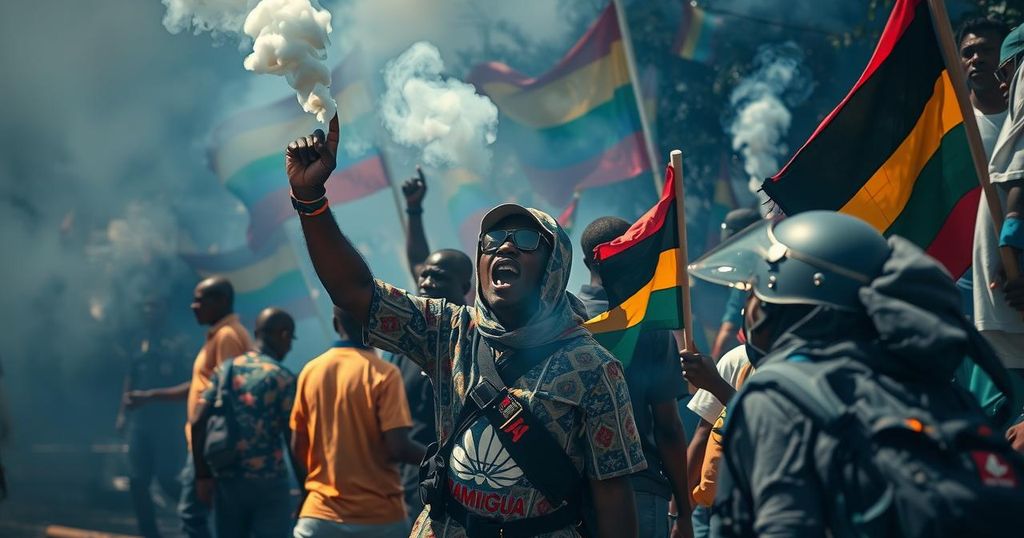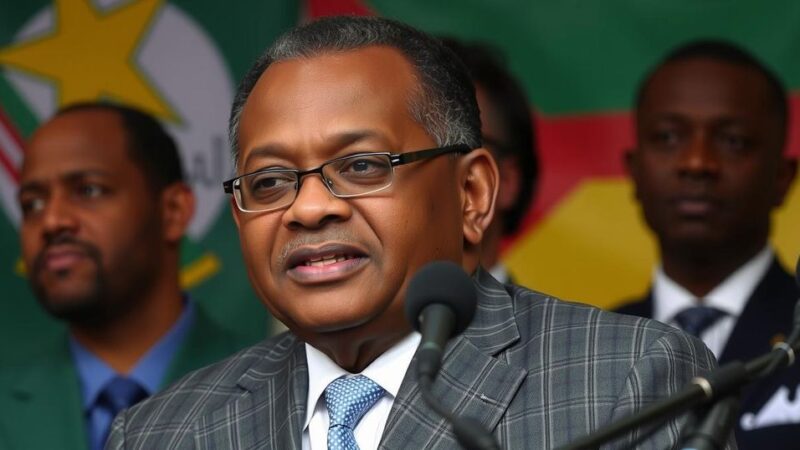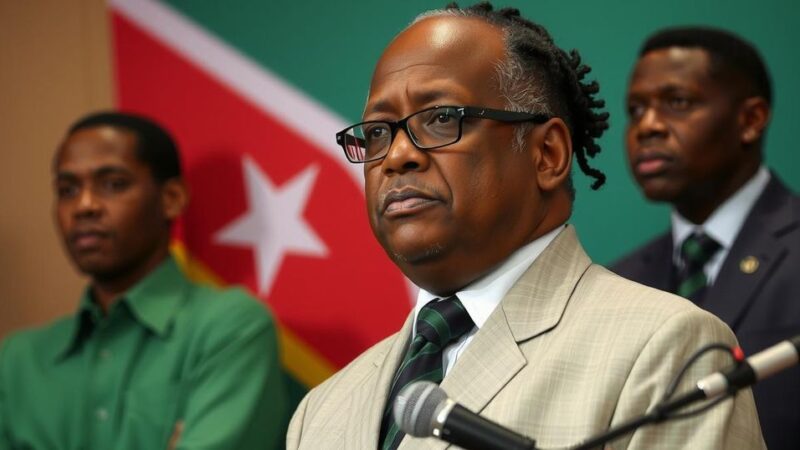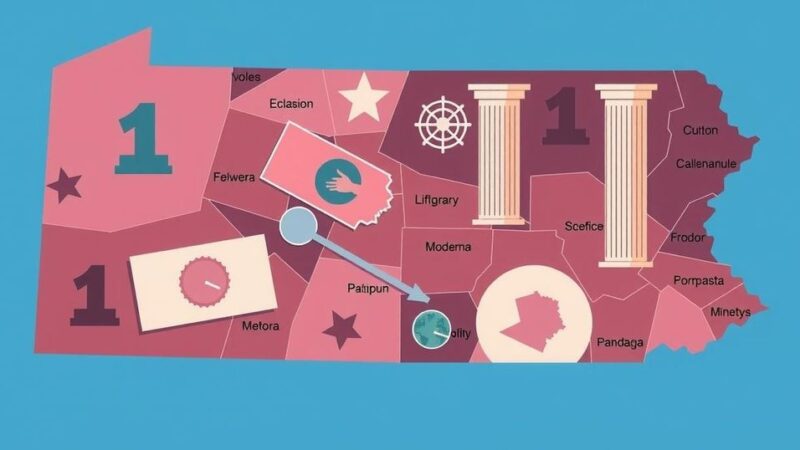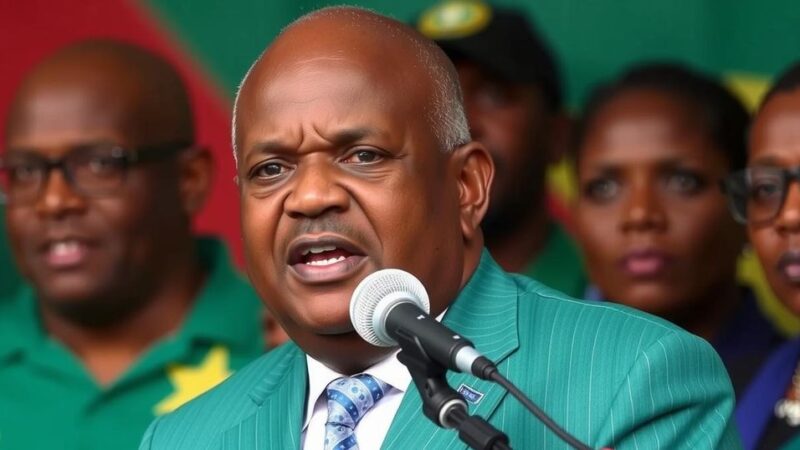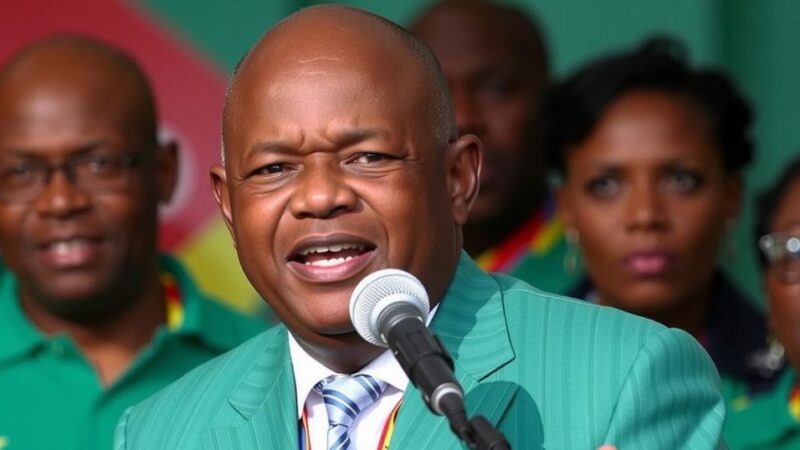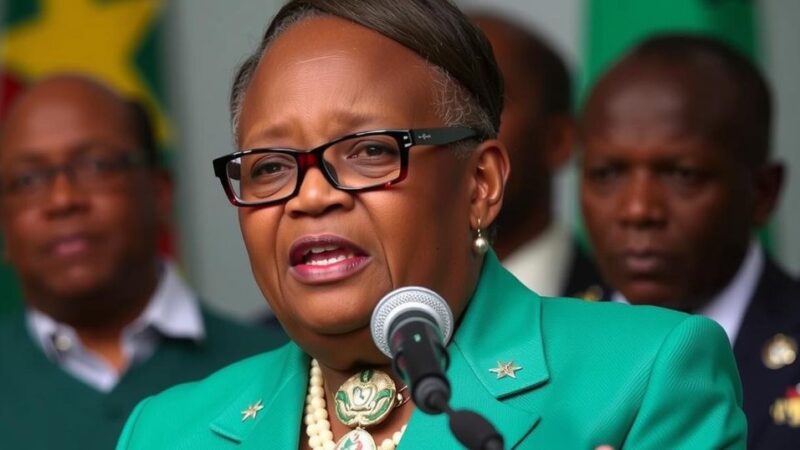Mozambique is experiencing widespread protests against alleged electoral fraud in the October 9 elections, with police using tear gas to disperse crowds supporting opposition leader Venancio Mondlane. Concerns over violence and civil rights violations have prompted warnings from human rights organizations, while Mondlane seeks a recount of the votes. The unrest has attracted international attention, with the Southern African Development Community planning a summit to address the crisis.
In Maputo, Mozambique’s capital, police have resorted to deploying tear gas to disperse protests against the ruling Frelimo party following allegations of electoral fraud during the recent elections held on October 9. As the largest anti-government demonstration to date, protestors, primarily consisting of young men, engaged in barricading streets with burning tires and displayed signs in support of opposition leader Venancio Mondlane, who claims the election was manipulated to extend Frelimo’s near half-century rule. Amidst rising tensions and concerns of violence, Mondlane, who is currently outside of Mozambique for safety reasons, indicated a significant shift in the political landscape of the country, denoting it as a decisive moment in history. The Frelimo party, which has governed Mozambique for almost 50 years, was recently declared the victor of the October elections, allowing President Filipe Nyusi to potentially transition power to Daniel Chapo at the conclusion of Nyusi’s two-term limit. However, opposition claims suggest that the elections were riddled with inconsistencies, prompting Mondlane to file a request for a recount with the Constitutional Council. Reports indicate that at least 20 individuals have lost their lives during the unrest post-election, leading to an increased police presence and protests met with escalating violence. Observers from organizations such as Amnesty International have raised alarms regarding the violent suppression of dissent, with indications that the authorities are utilizing disproportionate force against protestors. The urgency of the situation has been further emphasized by a warning from the Mozambique Bar Association, forewarning of potential bloodshed. International stakeholders, including the United Nations, have urged the Mozambique government to adhere to human rights laws while managing the protests. The Southern African Development Community has scheduled an extraordinary summit to discuss Mozambique’s recent developments, demonstrating the regional implications of the unrest.
The context of the unrest in Mozambique stems from the October 9 elections in which the ruling Frelimo party was declared the victor amid widespread allegations of electoral fraud. This democratic process has been under scrutiny, especially given Frelimo’s historic dominance over Mozambique for nearly five decades. There are increasing concerns about the erosion of democratic practices and the safety of citizens engaging in political dissent. The situation underscores a broader need for electoral integrity and adherence to human rights standards in managing public protests.
In summary, the protests in Mozambique highlight significant discontent regarding electoral integrity and government accountability. The responses from governmental authorities, including the use of force against demonstrators, have raised critical human rights concerns. As the nation approaches a potential political transition, the outcomes of such unrest may shape Mozambique’s future political landscape, calling for urgent attention and intervention from both national and international stakeholders to ensure peace and uphold democratic values.
Original Source: www.aljazeera.com

